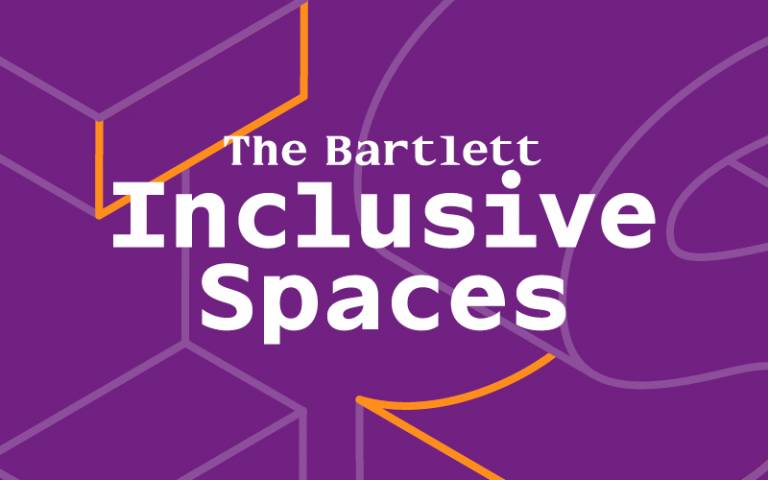Inclusive Spaces: Religious Infrastructure in the City
16 November 2022, 1:00 pm–2:00 pm

Join us for a thought-provoking online panel discussion exploring the interconnections between public spaces and personal faith.
This event is free.
Event Information
Open to
- All
Availability
- Yes
Cost
- Free
Organiser
-
The Bartlett Faculty of the Built Environment
Religious spaces create fundamental value for communities in contemporary, multicultural cities like London. But developing these spaces is often met with resistance, and this can mean that communities are forced to rely on informal religious infrastructure in ‘unregistered’ spaces.
In this event, we’ll explore how Muslim and non-Muslim communities experience the creation of Muslim spaces, and how these communities connect – or face barriers – with city planners and planning authorities.
We’ll ask: Where is Islamophobia taking place? Do Muslims have to be ‘invisible’ to live in accordance with their belief among non-Muslim communities? What places enable communities to live and practice Islam safely and comfortably, both in London and across the UK?
We’ll also explore how the interconnection between religious ‘lived space’ and ‘religious ecology’ (people, objects, technology, ideas, and capacities) can enable the production and inclusion of religious life and infrastructure in cities.
Led by The Bartlett Equality, Diversity and Inclusion (EDI) group, the Inclusive Spaces monthly series presents the latest ideas and research from The Bartlett’s leading thinkers in the built environment field. We explore disability, race, gender, LGBTQ+ and many other dimensions of diversity and discover how they intersect with built environments around the world.
About the Speakers
Ala’a Shehabi
Senior Research Fellow in Equality Diversity and Inclusion at The Bartlett Faculty of the Built Environment
Dr Ala’a Shehabi is a lecturer in Middle East Politics at EISPS and a Senior Research Fellow at The Bartlett Faculty of the Built Environment. Previously, she was the deputy director of the Institute for Global Prosperity at UCL. Trained in economics, she is now a transdisciplinary and mixed methods researcher focusing on public goods; infrastructure and development; energy justice; participatory action methods and citizen-scholarship through citizen science and citizen assemblies with a Middle East area focus. Through her experience in large scale research projects, she is interested in decolonial knowledge production and ethical international collaboration. She sits on conference planning committee at the ACSS and an ethics working group at the Social Science Research Council.
More about Ala’a ShehabiSaid Mahathir
PhD Candidate at The Bartlett Development Planning Unit (DPU)
Said Mahathir is a PhD candidate at the Development Planning Unit (DPU) of UCL working under Professor Haim Yacobi supervision. His thesis “Religious Infrastructure of Muslims in London: A Study of the Production of 'Lived Space'” focuses on understanding the interconnection between the production of religious 'lived space' and 'religious ecology' and how these interconnections turn into a platform providing for and reproducing religious life in the city in the context of London. He holds a BSc in architecture from the Islamic University of Indonesia and an MSc in urban planning from National Cheng Kung University, Taiwan. His research is sponsored by The Ministry of Religious Affairs of Indonesia.
More about Said MahathirHanadi Samhan
PhD Candidate and Seminar Leader/Tutor at The Bartlett Development Planning Unit (DPU), The Bartlett School of Planning (BSP) and the Faculty of Arts and Sciences University College London (UCL)
Hanadi Samhan is an urban practitioner and a PhD candidate at The Bartlett, UCL’s Faculty of the Build Environment. She has extensive experience in urban development projects in the MENA region, leading and delivering urban planning schemes and design solutions for clients in both the private and public sectors. Hanadi’s PhD research investigates Palestinian refugee camps in Lebanon through their volumetric dimension. She is also co-leading a research project called ‘Yawmiyat’ that aims to archive daily life spatial violence in Lebanese.
More about Hanadi Samhan Close
Close

